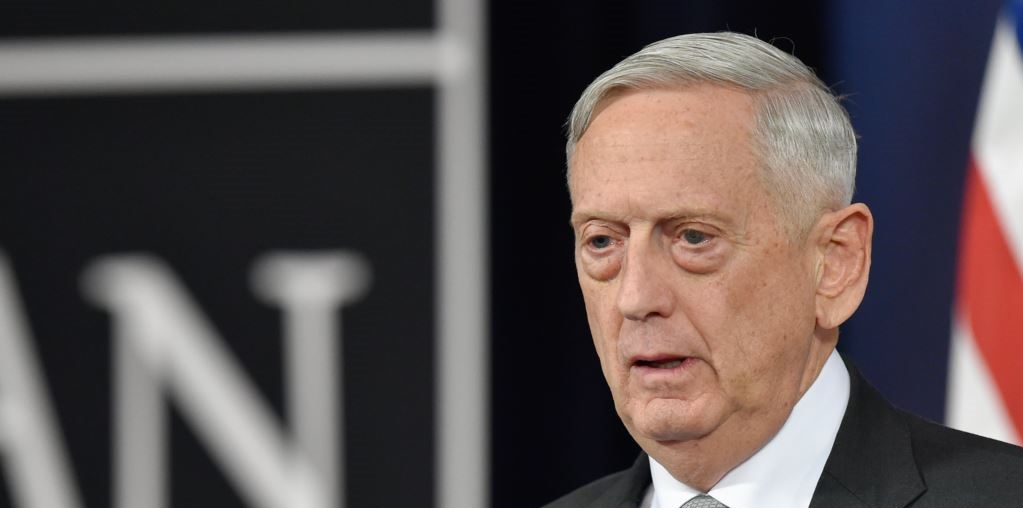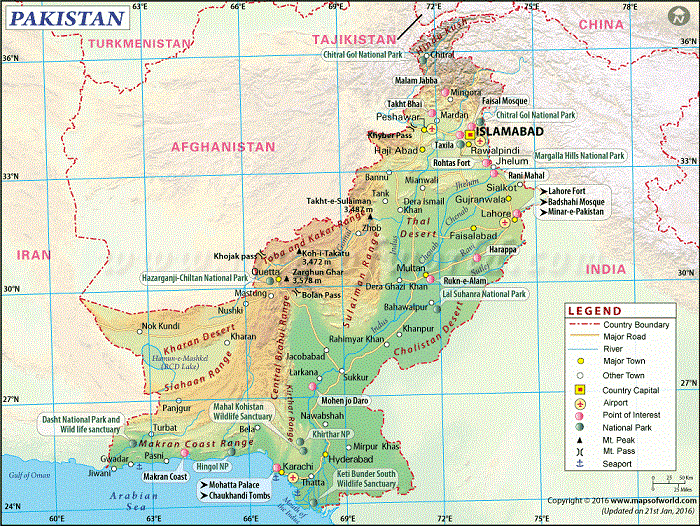US-Pakistan terror strategy
December 4, 2017 | Expert Insights

US Defense Secretary Jim Mattis is currently on an official visit to Pakistan to discuss counter terrorism strategies with Islamabad. The Trump administration has repeatedly called on Pakistan to take a more aggressive stance in the war against terrorism especially regarding insurgents moving back and forth across the border with Afghanistan.
Background
US has strived to be on friendly terms with both India and Pakistan, Washington has long considered Islamabad to be a more valuable ally. During the Cold War, Pakistan became a key friend to the US in South Asia. Pakistan's then Prime Minister, Huseyn Suhravardie in 1956 gave the United States the permission to lease the Peshawar Air Station (PAS) to be used for intelligence gathering of Soviet intercontinental ballistic missiles.
However, the relationship between Pakistan and the United States has been tested through the decades. One of the reasons for the relationship to have soured at times is in part due to Pakistan’s growing friendship with Russia and China. In 2013, Pakistan and China announced a series of projects to improve the infrastructure of Pakistan called the China–Pakistan Economic Corridor, which is valued at $62 billion. Another vital reason the relationship has dipped is due to the fact US has repeatedly called out Pakistan’s alleged involvement with various terrorist activities.
The burgeoning friendship between the United States and India has also soured the comfortable equation between US and Islamabad. One of the lowest periods in the Pakistan-US relationship was in 2011. In May of that year, US forces conducted a raid in Pakistan to kill the architect of 9/11, Osama Bin Laden who had been hiding in that country. The Pakistani government was only notified of the raid after it had been conducted.

Analysis
In 2017, US President Donald Trump accused Pakistan of harboring terrorists in the region. He said, “We can no longer be silent about Pakistan’s safe havens for terrorist organizations, the Taliban, and other groups that pose a threat to the region and beyond. Pakistan has much to gain from partnering with our effort in Afghanistan. It has much to lose by continuing to harbor criminals and terrorists.”
US Secretary of State Rex Tillerson too has spoken about the “erosion of trust” between the US and Pakistan. He said, “Pakistan must adopt a different approach, and we are ready to work with them to help them protect themselves against these terrorist organisations. We are going to be conditioning our support for Pakistan and our relationship with them on them delivering results in this area.”
US Defense Secretary Jim Mattis is currently on an official visit to Pakistan to discuss counter terrorism strategies with Islamabad. The Trump administration has repeatedly called on Pakistan to take a more aggressive stance in the war against terrorism especially regarding insurgents moving back and forth across the border with Afghanistan.
"We have heard from Pakistan leaders that they do not support terrorism. So I expect to see that sort of action reflected in their policies," Mattis told reporters traveling with him in the Middle East before his trip to Islamabad. When he was asked if he would press the Pakistani leaders to take more action against the insurgents, Mattis said, “That’s not the way I deal with issues. I believe that we work hard on finding the common ground and then we work together.”
Reports have long noted that militants in Pakistan have continued to cross the borders to enter Afghanistan. These militants are known to wage attacks against US, Afghan and allied forces. The insurgents from Pakistan have then been able to return to their safe havens in their homeland. There have also been reports that these militants have an unofficial relationship with Pakistan’s ISI that secures their safety.
Most recently, Gen. John Nicholson, the top US commander in Afghanistan, said there have been no changes in Pakistan’s support for militant networks. He noted, “They (Pakistani leaders and Afghan President Ashraf Ghani) identified certain steps that they were going to take. We’ve not yet seen those steps play out. We’re hoping to see those changes. We’re hoping to work together with the Pakistanis going forward to eliminate terrorists who are crossing.”
In 2017, the US announced that it would be withholding $255 million in military assistance unless Pakistan proves that it has taken sufficient steps towards effectively counter extremists threatening Afghanistan.
Assessment
Our assessment is that the US is dependent on Pakistan in order to effectively fight terrorism in Afghanistan. Without the cooperation of Islamabad, US’ war on terror, might not succeed. We believe that Washington will continue to incentivize Pakistan to cooperate with the United States on vital issues. The US is aware that there is a lack of trust within the Pakistan military about the current engagement and the US has conducted military exercises with Pakistan to increase trust and interoperability.








Comments